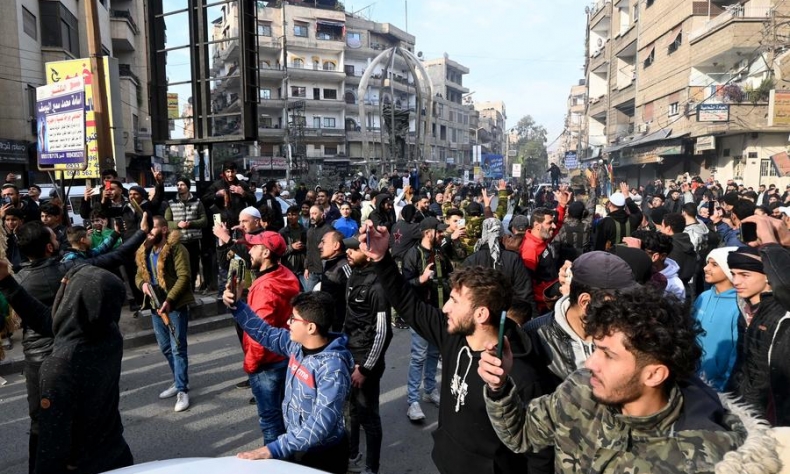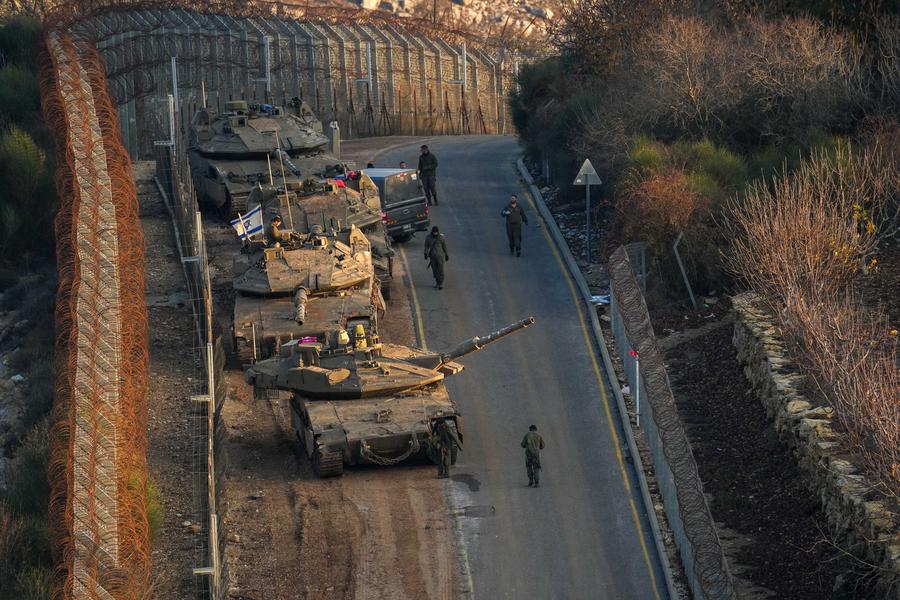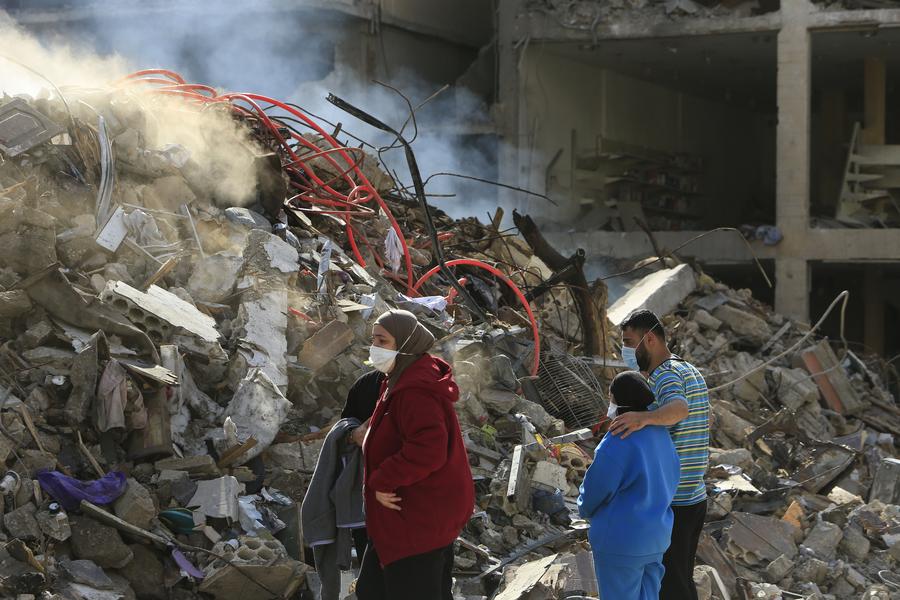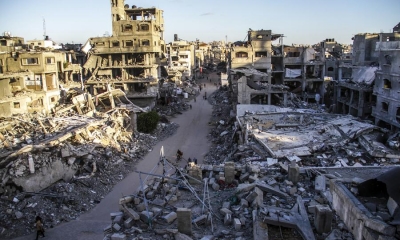Syria Falls, Middle East Impacted

Washington must not pour any more gasoline on the fires in the Middle East lest the flames consume friends and foes alike.
The abrupt fall of the Bashar al-Assad government in Syria marks a new phase in the Middle East and impacts Eurasia. Although the dust has not settled some observations can be made at this juncture. On a positive note, a full-scale regional war has been avoided for the time being.
Syria’s government forces in recent years were severely weakened owing to Western economic sanctions. Inthe face of the well-prepared onslaught by rebel forces, government forces soon gave up resistance, which made rebels easily take control of Damascus. Now Bashar al-Assad and his family have fled to Russia for asylum. Arrangements were apparently made for the transfer of power from the Assad government to the coalition of opposition forces backed by the West, Türkiye and even Israel.
Geopolitics behind the scenes
A Turkish-backed militant group has played the most important role in overthrowing the Assad government. Ankara’s promotion of regime change in Syria is explained by a desire for territorial aggrandizement which is to say an expansion of Turkish sphere of influence in the region, and further containing the Kurdish forces. Because militant anti-Turkish forces from the Kurdish ethnic group have been dominant in northern and eastern Syria, Ankara has an additional pretext to enter the Syrian fray.
The fall of the Assad government was also a key objective of Israel. So, it is not surprising that over the years the two states teamed up against Syria. Neutralizing Syria would weaken Turkish regional rival Iran, a staunch ally of Syria and key supporter of the Hezbollah resistance organization based in southern Lebanon.
Washington sought to overthrow the Assad government under Obama in its covert “Operation Timber Sycamore” and now that strategic goal is realized.
Israel, back in its 1967 war, took over the Golan Heights area of Syria and has held it ever since. It is now moving additional military forces into the Golan Heights and staging them to enter Syria next door in order to create a “buffer zone” east of the long-occupied Golan Heights. It is expected that the extent of this new buffer zone will be substantial and loom near Damascus.
The incursion by Israel from the occupied Golan Heights violates a 1974 border agreement between Israel and Syria, and the UN Security Council resolutions. Israeli leader Bibi Netanyahu just declared the occupied Golan Heights as a permanent part of Israel thus annexing the territory.
Qatar has been another longtime supporter of regime change in Syria. Qatar supports the militant Muslim Brotherhood organization which has had designs on Syria for decades. Türkiye is also a supporter of this organization so they have a common interest in promoting it as a political and religious force.

Pipeline politics are involved as well, some believe. There has been a project in the air since 2009 for a pipeline from hydrocarbon-rich Qatar to Europe via Syria and Türkiye. But the Assad government refused to let the projected pipeline cross its territory. Thus, Qatar and Türkiye have had a common interest in getting Syria to agree to such a pipeline.
Such a pipeline project was supported by the United States and NATO as a way to undermine Russian supplies of energy to Europe, some say. The sabotage of the North Stream pipeline and U.S. domestic fracking operations may lessen interest in such a scheme.
As for Iraq, it could be threatened now by terrorist organizations setting against Mosul and Tikrit. And what about Lebanon? Will it also be destabilized?
What will be the fate of Russian naval and air bases and facilities in Syria? If abandoned, this would have implications for Russia’s prestige and for its role in the Mediterranean and in the Middle East.
Israeli success and the fate of Palestinians
Clearly, the spectacular destabilization and demilitarization of Syria have positive implications for Israeli security at least in the short term.
Israel has now undertaken an extensive bombing campaign across Syria. It is said to be the largest air strike action in Israel’s history. Hundreds of Syrian military related sites have been destroyed by Israeli Air Force.
Syria under Assad was the lynchpin of the “Axis of Resistance” composed of Iran, Syria, Hezbollah, Iraqi groups, and Houthis in Yemen.
Weapons for Hezbollah based in southern Lebanon were supplied via various routes passing through Syria. These are now finished. The anti-Assad forces in Syria are aligned with Israel. The resistance forces are severely weakened.
So, Hezbollah will be under increased pressure in Lebanon and it will be less able to cause problems for Israel especially in the border region between northern Israel and southern Lebanon. Israel this year devastated Hezbollah leadership with key assassinations as well as with various sabotage operations including the exploding electronic devices used by Hezbollah members.

The Palestinian cause is further impaired because a weakened Hamas is now isolated from support by Iran and by Hezbollah. Hamas, however, began as an offshoot of the underground Muslim Brotherhood branch in Palestine. A parallel branch had been operational in Syria for decades. Thus, Hamas can reposition and develop ties with Türkiye, where the Muslim Brotherhood is supported by Erdogan, and with the new Syrian regime or elements within it.
Israel, in terms of territory, is aggrandized with the firm possession of Gaza and the increased control of the West Bank. Additionally, as noted, Israeli military forces are expanding eastward from the occupied Golan Heights to set up a large buffer area in adjacent Syrian territory. Israel has leveled a number of villages in southern Lebanon although it has apparently withdrawn military forces from there for the time being.
The future of Damascus remains unknown
The internal situation in Syria is unclear. There are at least five main anti-Assad military organizations operating in Syria: Hayat Tahrir al-Sham (HTS), Free Syria Army, Syria National Army, Syrian Democratic Forces, and the new Syrian Operations Room. There are various political currents and the situation is fluid.
HTS, led by Abu Mohammad al-Jolani, the main anti-Assad regime organization now in Damascus has been on the terrorist list of the United States for some years. This organization emerged from the al-Qaeda and ISIS terror organizations.
Back in the days of the Obama Administration, Jake Sullivan famously advised Secretary of State Hillary Clinton not to worry about ISIS and such terror organizations because they were “on our side.” So, overtly, Washington labelled them “terrorists” while covertly using them as tools against the Assad government in Syria. Today, the Western media fondly calls them “rebels”.
President-elect Donald Trump promised the American people that he would bring peace to the Middle East. While this is a noble goal, the region is now seriously destabilized and it may worsen after he enters office this January, making it difficult or impossible for him to realize this goal.
Because Israel leveled Gaza and expanded its control in the West Bank, the Palestinian cause is severely impacted. With Syria out of the picture, Iran weakened, and Hamas and Hezbollah isolated and severely weakened, the prospects are bleak for Palestine. Any “two-state solution” would seem foreclosed for now.
Washington must not pour any more gasoline on the fires in the Middle East lest the flames consume friends and foes alike.
The article reflects the author’s opinions, and not necessarily the views of China Focus.
 Facebook
Facebook
 Twitter
Twitter
 Linkedin
Linkedin
 Google +
Google +







